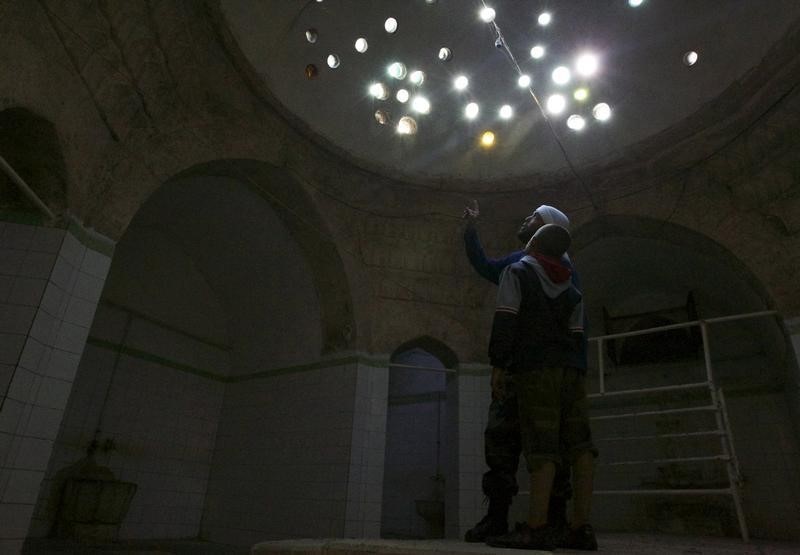By Kinda Makieh
DAMASCUS (Reuters) - Around 15,000 antiquities locked away in safes around the northwestern Syrian city of Idlib are at risk of being sold on the black market, the head of antiquities and museums Maamoun Abdulkarim told Reuters on Friday.
The al Qaeda-linked Nusra Front and other insurgents took the provincial capital on Saturday for the first time in the four-year conflict against President Bashar al-Assad.
"What has happened in Idlib is a true disaster. The worst catastrophe that has happened until now against the culture of Syria," Abdulkarim said.
The 15,000 antiquities were crafted throughout Syria's rich history, stretching back millennia. Pottery and statues are kept around the city, including in the main museum, Abdulkarim said.
"The armed groups kicked out the employees of the museum," he said, adding that Syria's treasures could be smuggled and sold abroad in neighbouring Turkey.
Syria is a cultural treasure trove and home to six UNESCO World Heritage sites. Four of these sites, including Palmyra and the Crusader castle Crac des Chevaliers, have been used for military purposes, the United Nations says.
Damascus estimates that more than 1,500 items may have been stolen from museums in Raqqa, a city in northeastern Syria now controlled by Islamic State militants, and Deir Atiyah in northern Damascus.
When the government controlled Idlib, the 15,000 antiquities were stored in a safe area to preserve and protect them, Abdulkarim said.
The U.N. Security Council in February also banned all trade in antiquities from the war-torn country, where 220,000 people have been killed.

As jihadists who adhere to a hardline school of Islam have grown in power, they present a new threat to Syria's heritage. Shrines and tombs in areas under their control have been targeted and destroyed as idolatrous symbols.